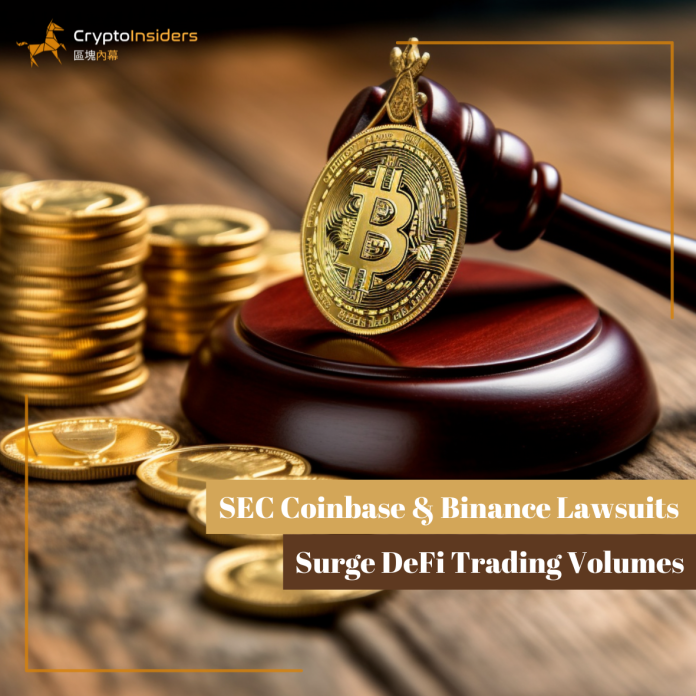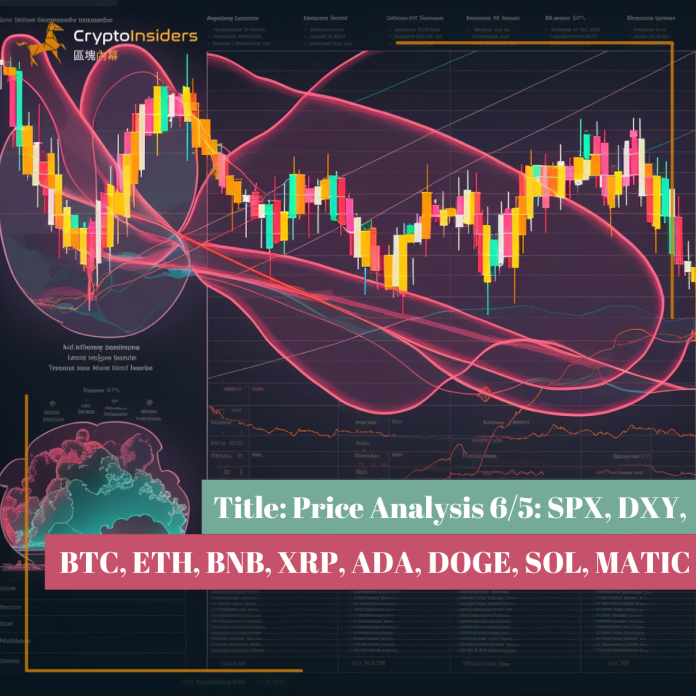Introduction
The cryptocurrency market has been experiencing a lot of turbulence lately. The Securities and Exchange Commission (SEC) in the US has filed lawsuits against two of the largest cryptocurrency exchanges, Coinbase and Binance. Despite this, decentralized finance (DeFi) trading volumes have surged.
SEC Lawsuits Against Coinbase and Binance
The SEC has accused Coinbase of misleading investors about its lending program. Coinbase had planned to launch a lending program that would allow customers to earn interest on their cryptocurrency holdings. However, the SEC claims that the program is a security and therefore subject to SEC regulation. Coinbase has pushed back against the SEC’s claims, saying that the lending program is not a security.
Binance, on the other hand, has been accused of operating an unregistered securities exchange. The SEC claims that Binance allowed US customers to trade cryptocurrency derivatives without registering with the agency. Binance has denied the allegations and has said that it will fight the lawsuit.
DeFi Trading Volumes Surge
Despite the lawsuits against Coinbase and Binance, DeFi trading volumes have surged. According to data from Dune Analytics, the total value locked in DeFi protocols has increased from $23.8 billion in January 2021 to over $82 billion in September 2021.
DeFi platforms allow users to trade cryptocurrencies without the need for intermediaries such as exchanges. They offer a decentralized alternative to traditional financial services, and their popularity has been growing rapidly. Some experts believe that the recent surge in DeFi trading volumes is due to investors looking for alternatives to centralized exchanges.
Related:SEC Labels 61 Cryptocurrencies Securities After Binance Suit
Conclusion
The cryptocurrency market is constantly evolving, and the recent lawsuits against Coinbase and Binance are just the latest example of this. However, the surge in DeFi trading volumes shows that investors are still interested in cryptocurrency and are willing to explore decentralized alternatives. It will be interesting to see how the market develops in the coming months and whether decentralized platforms continue to gain popularity.





